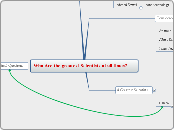Who Are the greatest Scientists of all times?
Famous Scientists
Ibn Al Haytham
Ibn Sina
Ahmed Zewail
nano technology
Considered Scientists
Zahi Hawas
Nicola Tesla
4 Greatest Scientists
Aristotle
Albert Einstein
everything should be made as simple as possible, but not simpler
Isaac Newton
Galileo
Who is he?
An italian who became an important thinker, scholar and writer.
He was the first to use a telescope to observe the sky.
What makes him great?
He chaned the way people look and understand the universe
He was the most famous "martyr for science"
What makes him a "great" scientist?
He transformed the telescope from a toy into a powerful instrument of discovery and observed the sky.
He established a formal relationship between the motion of an object,. time & distance. These experiments and their results formed the basis of modern science of physics.
What is the "science" that he did? Why is what he did "science"?
He followed the Scientific Method
observe. observe & hypothesize
come up with a way to test the observation.
Experiment the results
Why did the Roman Church Condemn Galileo?
because he had made enemies of key figures both in and outside the Church.
because by challenging the natural philosophy of the day Galileo qas also challenging the teaching of the church
he failed to offer proof that the old ptolemaic system was contrary to observable evidence.
4 Critical Questions
What is a scientist?
A person who uses the scientific method to do research (a person who uses observation, experimentation and theory to learn about a subject).
What is "science"?
Science refers to a system of acquiring knowledge based on the scientific method, as well as to the organized body of knowledge gained through such research.
What is "good" science?
Has explanatory power- it makes sense of the data.
It is fruitful- it leads to new questions, observations and experiments.
It offers some comprehensiveness- it unifies many phenomena, offers a synthesis of other ideas.
Is testable- parts and consequences can be tested.
What makes science different from other ways of seeking to understand the universe? And who cares?
